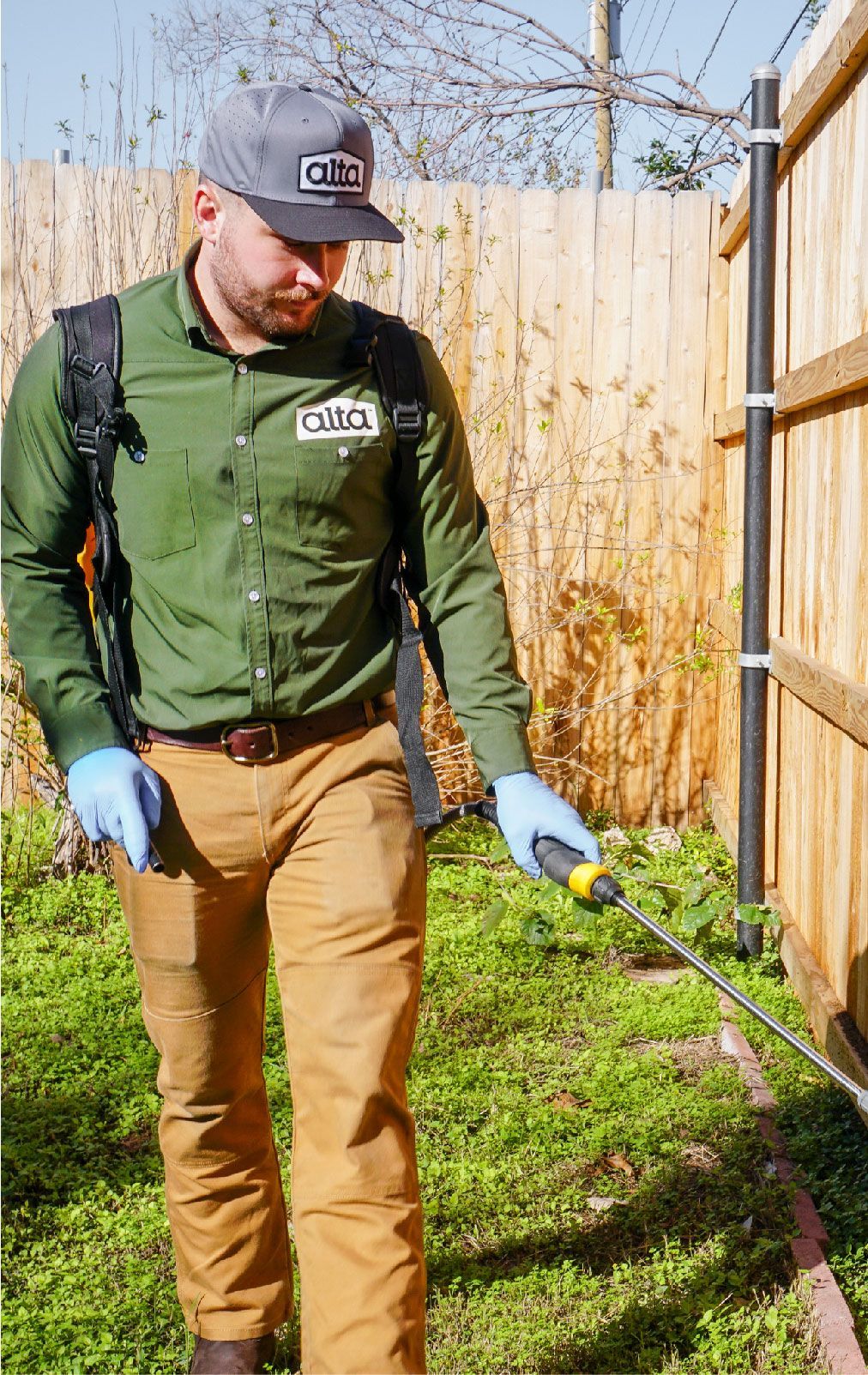Call Us Now 509-283-8958

Bee & Wasp Extermination
$59 Initial Pest Control Deal
*$59 monthly pest control service
Choose Us for Pest Control
100% Guarantee
Free Retreatment
Licensed, Insured & Bonded
Safe, Effective, & Affordable Pest Control
In Business 10 years
5 Star Rating
Award Winning Service
Family Owned & Operated
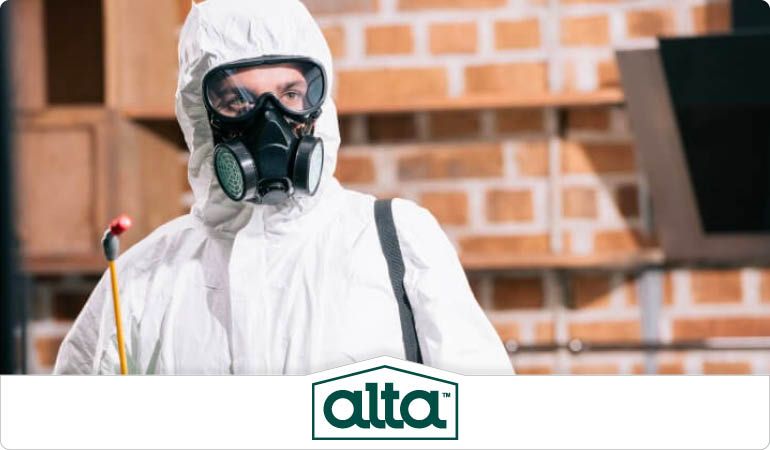
Taking Bugs to a better Place
Call us Now 509-283-8958
Bee Pest Control
Bees play an important role in perpetuating necessary pollination for growing crops, and helping plants to thrive. However, not all bees are the same, and some can be a potentially dangerous pest when humans live in shared spaces with these flying insects.
A large portion of wild bees are Africanized Honey Bees, sometimes called “killer bees.” Unfortunately, these Africanized bees are invasive to many regions and are known to be highly aggressive, even without provocation. They are known for invading other bee hives and sometimes can form dangerous swarms. These swarms can become very large and aggressive, leading to some serious problems for any humans living in the area of their established hives.
What are bees?
Bees are flying insects that are easily identifiable by their somewhat fuzzy black-and-yellow striped bodies. When they swarm, they may appear in a dark cloud-like formation seen directly overhead in the sky. They feed on plant nectar, but they are also attracted to things like hummingbird feeders, sweetened beverages and other sources of sugar that may be left out intentionally or unintentionally around the home.
Bees have venomous stingers located at the end of their abdomens. These stingers are used for defense and can cause pain, swelling and allergic reactions in some people who may be allergic to bee stings.
Bees are a social insect that live in large colonies or hives. The queen bee is responsible for laying all of the eggs; in order for a hive to be eradicated, the queen must be destroyed. Sometimes, when a hive becomes too populated, a new queen will be born and leave with a number of worker bees and drones to establish a new colony. Under the right conditions, multiple hives can be active in a single location, leading to an increased chance of dangerous swarms, especially when Africanized Honey Bees are involved.
Bee Pest Control
If you have bees at your property, you know how scary it can become if they swarm or make loud buzzing noises when you leave your home. It is not uncommon for bees to take up shop and build a nest under a picnic table, in the play area of children, under the steps of a home, under a bush, inside of garden tool containers or grill covers, under the deck, or on the edge of a garage. They are able to find ledges to build a place to come back to, and if they are not stopped they will continue to build on their hive over the course of several years.
They can move in and seemingly take over the place in a short amount of time, making you and your family feel unsafe. Often, you may only see a few bees buzzing around, and since they are seen quite naturally in nature, you may not notice that they have set up shop so close to your living areas or outside backyard play and leisure spaces. Sometimes, they may just be traveling through while swarming to a new location, and other times they have set up shop and built a hive. If there is a beehive, it will need to be removed along with any honey to prevent the bees from coming back.
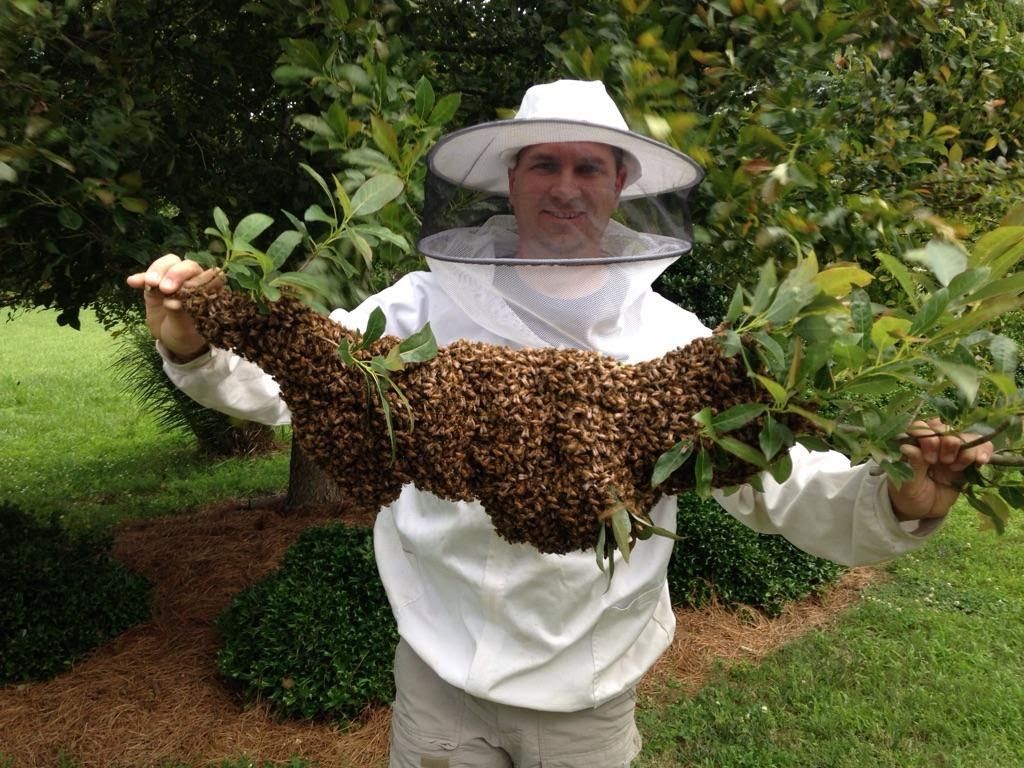
Many people may believe that it is fine to live with bees, that they are a part of nature and that they will leave humans alone if they are left alone. In fact, bees are often territorial and will swarm on occasion to protect their hive, even if they are "left alone." They can become quite aggressive and in those instances, they can cause great damage to human health. It will always be the better situation to remove a beehive if it is invading a living space with humans. It is always better to be safe and take care of this issue as soon as it is discovered.
Keep your family safe by not approaching the bees, as they can become territorial and attack any person who is seen as a threat to protect their colony. Our Pest Control Company has the protective gear and equipment to safely get rid of your bee problem right now. It is not advised that you try to rid your home of your bee problem yourself. There are over-the-counter sprays that offer bee removal to spray a hive at dusk or dawn, and that it will work to eradicate a bee problem on your property. These methods usually do not get rid of bees, but will sometimes serve to make them angry and agitated enough to swarm the next time they sense a human is approaching their hive. Getting rid of a beehive for good is better left to the work of trained professionals who are experienced in how to handle and safely removing a beehive.
Don’t let bees take over your home or business! Call us now to get a free bee control estimate! We provide family-safe bee extermination services.
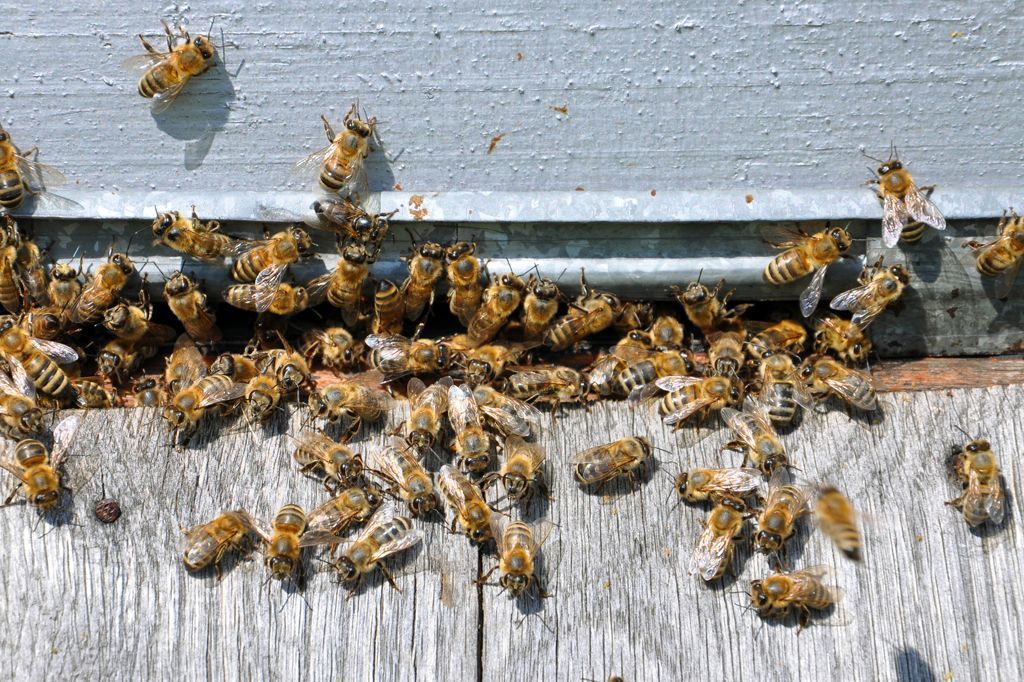
Signs of bee infestation
Bees generally build their nests or hives in trees or under the eaves of a home or porch. They may also choose a corner of a shed or even take up residence within walls or attics. They can even be found under tables on the deck, under furniture or around any structure that is left unattended for an extended period of time.
You may notice the physical structure of the beehive near your home. You may also notice that you have an unusually high number of bees near your home or yard. If so, you may have a dangerous problem that requires professional assistance. We are your pest control experts, and we are ready to come over to help eradicate your bee problem right now.
Bee removal services
Bee removal is a tricky and potentially dangerous action if not handled by professionals. You should not attempt to remove a colony of Africanized Honey Bees yourself. It is not suggested that you buy a bee spray from a store, and wait until "dawn or dusk" to try to spray them away yourself. Instead, count on the pest removal experts at Overson Pest Control. We will be happy to inspect your property and identify the location of bees in order that the proper safe removal and steps for their eradication can be taken.
Are bees really a problem?
Although bees can play an important role in the ecosystem, the bee population can become a nuisance for homeowners and business owners in the region. Because the majority of wild honey bees are Africanized, they are much more naturally aggressive than regular bees. In addition to boldly defending their hives, these bees may sometimes swarm further from the hive and attack a person or animal.
Some people are allergic to bee stings, and these allergies can become life-threatening. If a person is stung multiple times by many bees, the results can cause illness and, in severe cases, death. Although Africanized Honey Bees are no more venomous than any other bee, their aggressive behavior means that a person is more likely to be stung multiple times when facing this type of bee swarm.
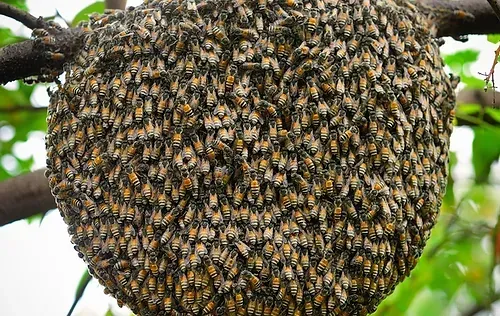
If you need a bee/wasp exterminator, call us today
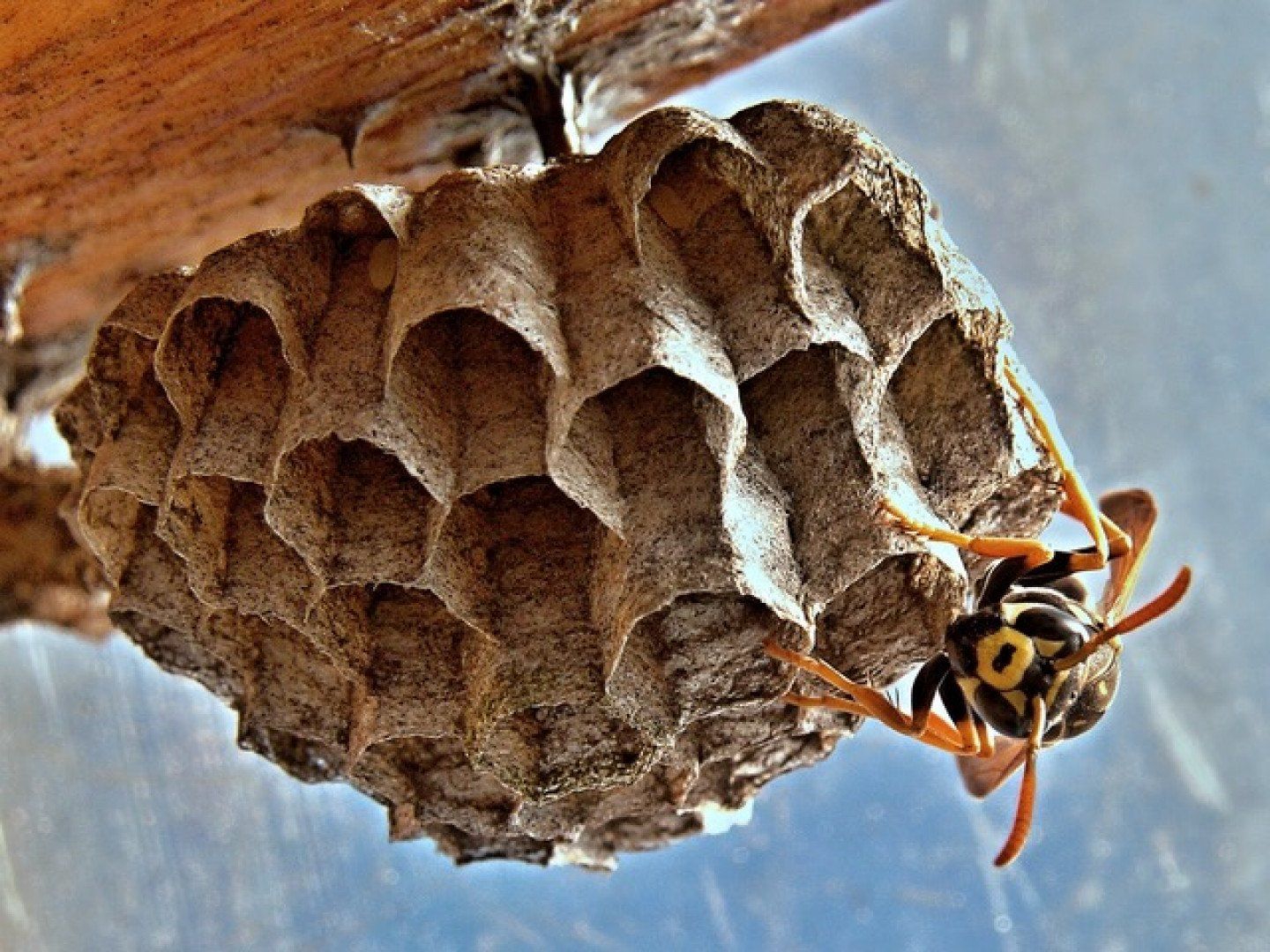
There are a large number of bee and wasp species. Nearly every species of bee or wasp is prone to attack and nearly all of them have stingers. These stingers deliver a painful pinch and are loaded with venom. Tackling the removal of a bee or wasp hive or nest is not something the average person should attempt on their own. It takes an experienced pest control exterminator with skills to know how to get rid of stinging pests. We are highly trained and certified in bee and wasp removal. Our pest control professionals are equipped with the right tools and methods to track down bee and wasp hives and nests. Sometimes the hives can get quite large and attempting to remove it yourself, without the proper protections and precautions, can be dangerous. We will stop the bees and wasps, remove the nests and hives, and then provide you with solution for bee and wasp prevention.
Taking Bugs to a better Place
Call us Now 509-283-8958
Wasp Pest Control
Wasps don’t feed on pollen like bees do. In fact, these gangly-looking insects feed on other insects, making them beneficial in gardens and around homes throughout America. However, they don’t always travel alone. Wasps tend to gather in colonies and can quickly overtake a space. Although wasps tend to build their nests in trees and other high places, they often choose the most inconvenient location: right outside our doors.
They gather in groups of four, five or more and build paper nests on patio ceilings, deck railings and other spots near entryways. Because of their aggressive nature, it’s not a good idea to get close to their nests; you might end up with a nasty sting if you do. A wasp infestation is nothing to take lightly and may require professional wasp removal services depending on the size of the nest and the number of wasps in the area. Keep in mind that wasps don’t actively seek to sting humans and will usually only attack if they’re threatened.
Wasps Pest Extermination
The Paper Wasp
The Paper Wasp that we find most commonly around our homes. These guys will sting if provoked but seem to be more at ease than its cousin the yellow jacket. They start to build their nests in the springtime and their colony consists of one dominant female and several worker females. The adults feed on nectar and the larva feed on insects that the adults chew up for them. My experience with them is they seem pretty tolerant of human activity but will attack if they feel threatened. It is my recommendation to locate and remove wasps early in the season to keep the population from getting too big.
The Wasp Lifestyle
Did you know that there are more than 100,000 species of wasps? We are host to many wasp varieties including the common yellow jacket wasp (these are the nasty guys with the yellow and black stripes), the mud dauber wasps (they’ve got long skinny waists and build their nests out of mud), and the dreaded paper wasp (theses are the nastiest of the breeds anywhere as they are exceptionally aggressive).
Tips for Wasp Removal
Although it looks like an easy fix, just simply removing the nest with a broom handle won’t do the job. It’ll actually taunt the insects and make them turn on you, which could encourage a swarm that can result in stings directed right at you. Additionally, there are some chemical sprays contain toxic ingredients that can harm other beneficial insects in the area. Therefore, it’s not always wise to start spraying a nest with a product that was bought from the store. It’s best to hire a professional pest control service to inspect the nest and to use the appropriate wasp treatment method to get rid of wasps in the areas that you inhabit near a home or business.
Do you have a wasp infestation and need it removed ASAP? Contact our professionals to learn more about our wasp treatment options. In fact, paper wasps, in particular, play an important role in gardens throughout the area and rarely cause harm to people and pets. However, if they feel threatened, their painful stings can cause large welts and severe allergic reactions in those people with insect sting sensitivities. Call us today to remove wasps the right way.
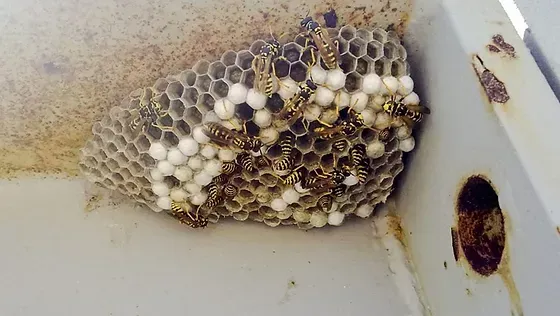
There are a large number of bee and wasp species. Nearly every species of bee or wasp is prone to attack and nearly all of them have stingers. These stingers deliver a painful pinch and are loaded with venom. Tackling the removal of a bee or wasp hive or nest is not something the average person should attempt on their own. It takes an experienced pest control exterminator with skills to know how to get rid of stinging pests. We are highly trained and certified in bee and wasp removal. Our pest control professionals are equipped with the right tools and methods to track down bee and wasp hives and nests. Sometimes the hives can get quite large and attempting to remove it yourself, without the proper protections and precautions, can be dangerous. We will stop the bees and wasps, remove the nests and hives, and then provide you with solution for bee and wasp prevention.
Bee and Wasp Exterminator near me
Serving Spokane, WA and Surrounding Areas
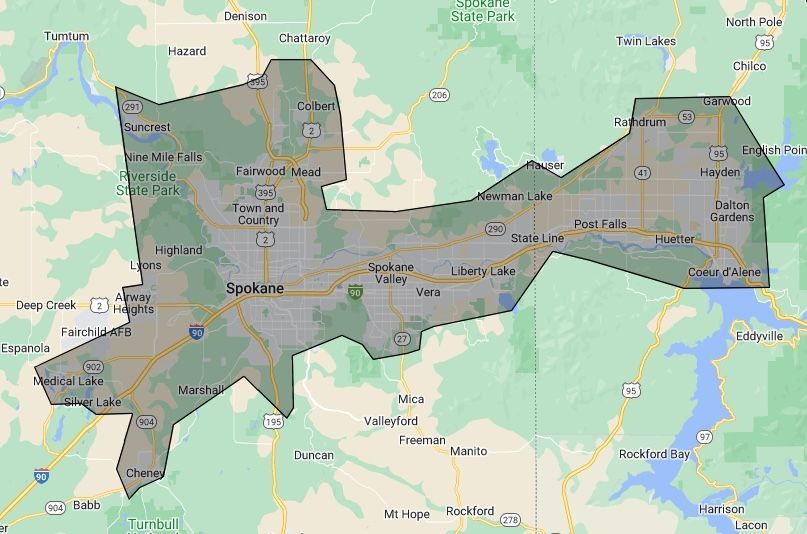
Spokane
Suncrest
Colbert
Nine Mile Falls
Fairwood
Mead
Town and Country
Highland
Lyons
Airway Heights
Medical Lake
Silver Lake
Spokane Valley
Marshall
Cheney
Vera
Liberty Lake
Newman Lake
Post Falls
Huetter
Coeur d’Alene
Dalton Gardens
Hayden
Rathdrum
Stateline
Garwood
Taking Bugs to a better Place
Call us Now 509-283-8958







